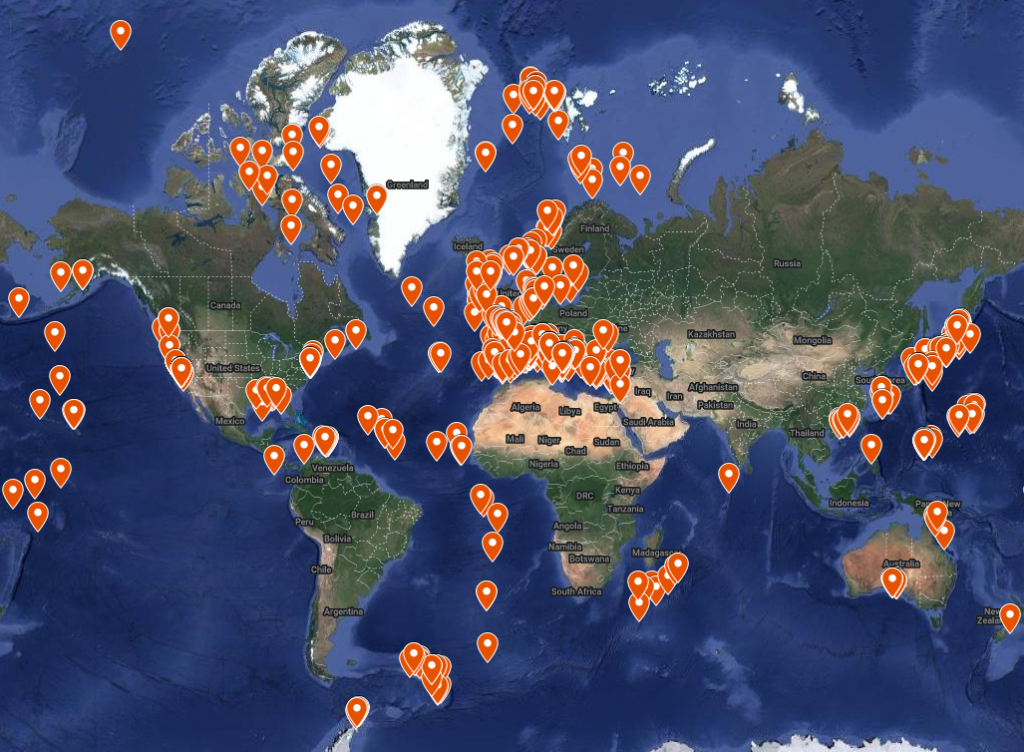Ocean Scientists Call for Prevention of Deep-Sea Plastic Pollution

A map included in the scientists’ policy brief that marks identified plastic pollution on the seafloor 200 meters or deeper in the ocean. You can browse the interactive version of the map here.
For Immediate Release
Paris, France – This week, a new round of UN negotiations is taking place to design an international treaty to combat plastic pollution. As negotiators meet, ocean scientists are joining them in Paris to call for special attention to plastic in the deep sea.
The team of experts from the Deep-Ocean Stewardship Initiative (DOSI) say that millions of tons of plastic have sunk to the deepest parts of the ocean since 1950. Its presence there creates unique problems for policy.
“The deep seafloor is the ultimate sink for marine plastic debris in the open ocean” said Dr. Lucy Woodall, one of the authors of the team’s policy brief for negotiators. “The important thing to note is that, once it gets there, the plastic is almost impossible for humans to recover. It can then continue to cause harm for centuries.”
The scientists pointed out that the environmental impact of deep-sea plastic and associated chemicals is not limited to where it lands. Plastic can fragment over time into microplastics, which can be eaten by animals throughout the ocean and interfere with their growth, behavior, and reproduction. Predators that eat animals with plastic in them are also affected. That makes ocean plastic a food safety and health concern for humans.
Because plastic that reaches the deep ocean is largely unretrievable, the experts argue that negotiators working to solve the challenge of plastic waste should include policies that prevent it from reaching the ocean in the first place. Dr. Melanie Bergmann, another of the DOSI scientists, suggested that “a cap on the production of new plastics could play an important role in solving the problem.”
“The source of all plastic pollution in the deep ocean is land via rivers and the sea surface,” the team says in its policy brief. “Managing land and ship-based activities on and near the sea… seems the most sensible strategy for safeguarding this sensitive ecosystem and all those who depend on it, including ourselves.”
DOSI’s policy brief on plastic pollution in the deep ocean is available here in English and Spanish.
Media Contact: Brandon Gertz, DOSIcomms@gmail.com

